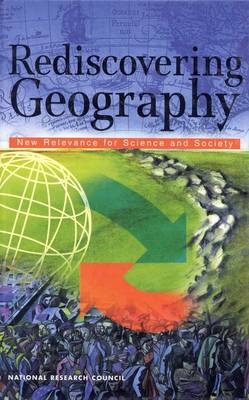As political, economic, and environmental issues increasingly spread across the globe, the science of geography is being rediscovered by scientists, policymakers, and educators alike. Geography has been made a core subject in U.S. schools, and scientists from a variety of disciplines are using analytical tools originally developed by geographers.
Rediscovering Geography presents a broad overview of geography's renewed importance in a changing world. Through discussions and highlighted case studies, this book illustrates geography's impact on international trade, environmental change, population growth, information infrastructure, the condition of cities, the spread of AIDS, and much more.
The committee examines some of the more significant tools for data collection, storage, analysis, and display, with examples of major contributions made by geographers.
Rediscovering Geography provides a blueprint for the future of the discipline, recommending how to strengthen its intellectual and institutional foundation and meet the demand for geographic expertise among professionals and the public.
Table of Contents
- Front Matter
- Executive Summary
- 1 Introduction
- 2 Geography and Critical Issues
- 3 Geography's Perspectives
- 4 Geography's Techniques
- 5 Geography's Contributions to Scientific Understanding
- 6 Geography's Contributions t o Decision Making
- 7 Strengthening Geography's Foundations
- 8 Rediscovering Geography: Conclusions and Recommendations
- References
- Appendix A: Enrollment and Employment Trends in Geography
- Appendix B: Professional Organizations in U.S. Geography
- Appendix C: Biographical Sketches of Committee Members
- Index
- Plates
- ISBN10 030907679X
- ISBN13 9780309076791
- Publish Date 28 April 1997
- Publish Status Active
- Publish Country US
- Imprint National Academies Press
- Format Paperback
- Pages 259
- Language English
